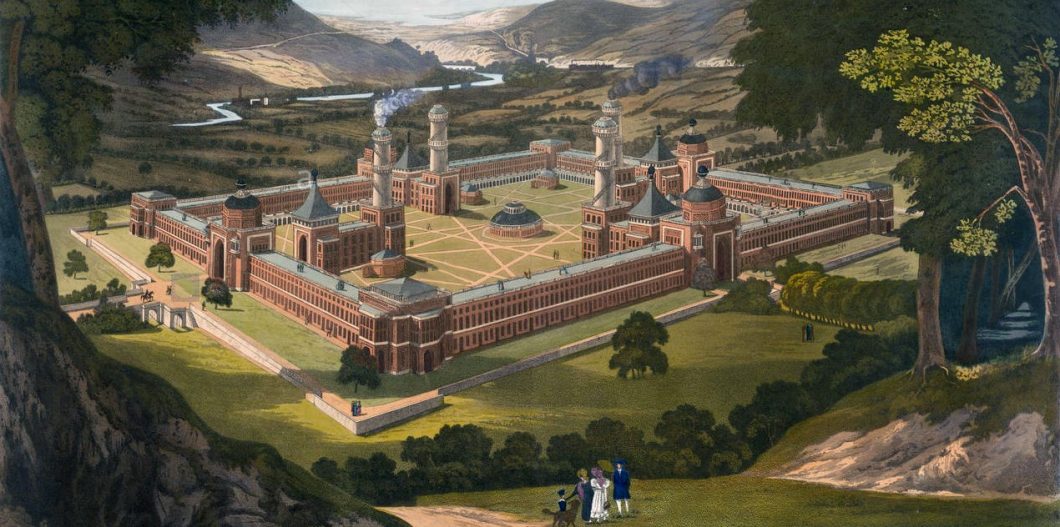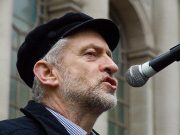Identity would seem on socialist terms to prevent the achievement of fundamental socialist aims rather than to advance them.
The Failure of a Socialist Dreamer
Born into poverty, he acquired great wealth as a young industrialist. Surrounded by fellow captains of industry who ruthlessly exploited the poor, he introduced far-reaching reforms to improve the lives of workers and children. Almost entirely lacking in formal education, he became one of the leading intellectual lights of his age, later addressing both the British House of Commons and the US Congress. And seeking to secure a brighter future for humanity, he put his money where his mouth was, bankrolling one of the most important utopian experiments in US history. It failed miserably.
Who was Robert Owen? How did he rise from obscurity to play such a prominent role in 19th-century history? And why did his grandest dream end in nightmare? These are questions I often pose to my graduate philanthropy students at Indiana University, as well as groups of emerging leaders I take annually to the site of his utopian experiment in southern Indiana. Such questions are especially timely now, as we mark the 250th anniversary of Owen’s birth on May 14, 2021 and the federal government embarks on a program of unprecedented peacetime public spending.
Owen grew up in Wales, the sixth of seven children of an ironmonger and saddler. Though lacking in formal education, he loved to read. First apprenticed to a draper, he became at age 21 manager of a textile mill in Manchester, where he soon joined the local philosophical society. At the age of 28, he married Caroline Dale, daughter of the owner of the New Lanark mills, with whom he had eight children. Owen and his partners soon bought the mill from his father-in-law and began a series of reforms that would improve the conditions of those who lived and worked there.
Until Owen’s day, workers were typically paid in tokens good only in company stores selling inferior goods at inflated prices. Owen began offering high-quality goods at prices barely above cost. He pushed for an eight-hour workday. And he introduced educational innovations, moving children from the factory to schoolhouses. These and other reforms dramatically lowered rates of alcohol abuse and illegitimacy, enhanced the respect and loyalty of workers, and made Owen famous. Among the visitors to New Lanark who studied his methods was the future emperor Nicholas I of Russia.
Owen believed in the plasticity of human character, the notion that people become what they are molded to be. If he could gain control of the physical and social forces that shape human beings from the first years of life, he thought, he could eliminate vice and foster virtue. He opened an Institute for the Formation of Character, and above each worker he hung a cube, each face of which was painted a different color, a “silent monitor,” indicating how well each was performing his tasks. Eventually, Owen’s views led him to socialism, a term he introduced to the English-speaking world. He wrote:
Is it not the interest of the human race, that everyone should be so taught and placed, that he would find his highest enjoyment to arise from the continued practice of doing all in his power to promote the well-being, and happiness, of every man, woman, and child, without regard to their class, sect, party, country or colour?
Sailing to America, Owen put his ideas to the test in southern Indiana. A millennialist named George Rapp and his group had cleared the land and built a thriving Christian community called Harmony there in the early 1800s. In 1825, Owen bought the community and renamed it New Harmony, investing most of his fortune in it. There he expected to prove that a town of “unity and mutual cooperation” could attract some of the best and brightest people and inaugurate a “new moral world.” Initial efforts appeared successful, as prominent scientists, artists, and educators flocked to the town.
The community was based on Owen’s rejection of “three monstrous evils”: private property, organized religion, and marriage. Contemplating his socialist ideal as he envisioned implementing it in America, he wrote:
The principle of union and co-operation for the promotion of all the virtues and for the creation of wealth is now universally admitted to be far superior to the individual selfish system and all seems prepared or are rapidly preparing to give up the latter and adopt the former. In fact, the whole of this country is ready to commence a new empire upon the principle of public property and to discard private property and the uncharitable notion that man can form his own character as the foundation and root of all evil.
Whether Owen subscribed to atheism is doubtful, but he was an undoubted and ardent opponent of organized religion, writing:
My friends, I tell you that hitherto you have been prevented from even knowing what happiness really is, solely in consequence of the errors—gross errors—that have been combined with the fundamental notions of every religion that has hitherto been taught to men. And, in consequence, they have made man the most inconsistent and the most miserable being in existence. By the errors of these systems he has been made a weak, imbecile animal; a furious bigot and fanatic or a miserable hypocrite; and should these qualities be carried, not only into the projected villages, but into Paradise itself, a Paradise would no longer be found!
Owen’s dim view of the existing state of the institution of marriage is apparent from his efforts to promote the liberalizing of divorce laws:
All that I now desire is to see another law enacted, by which divorces . . . may be obtained equally by rich and poor; to remove the chief cause of so much existing deception, prostitution, promiscuous intercourse, and crime, and the dreadful evils which necessarily flow from them to both sexes. . . . And this change in the law of divorce is all that is now required to enable me . . . to introduce to the world the most splendid practical arrangements, easy of introduction, for the emancipation of man from ignorance, poverty, division, and crime, that have ever yet been conceived, even in the most fervid and sanguine imaginations of poets, philosophers, and reformers of past and present time.
People turned out to be reluctant to work hard when they saw others who labored little enjoying the same life.
True to his word, in New Harmony Owen attempted to do away with personal assets, transformed the Harmonist’s houses of worship into civic centers, and discouraged any religious basis for marriage. He envisioned a life in which children would live with their families until age 3, at which point the community would assume responsibility for their care and upbringing. Men and women would live in equality, each bearing equal responsibility for contributing to the work of the community. Workers would be paid strictly according to the amount of time they labored.
But Owen’s vision collapsed after just two years. Owen himself was frequently absent, choosing instead to travel to promote his ideas and leaving his utopia’s daily management to others. He also seems to have overestimated the degree of harmony he could foster. One resident, Josiah Warren, wrote:
It appeared that it was nature’s own inherent law of diversity that had conquered us – our “united interests” were directly at war with the individualities of persons . . . and the instinct of self-preservation.
People turned out to be reluctant to work hard when they saw others who labored little enjoying the same life. Owen’s son, David, wrote that the town had attracted a “heterogeneous” group that included people devoted to principle, “lazy theorists,” and “a sprinkling of unprincipled sharpers.”
Although Owen left New Harmony for good after the experiment failed, five of his children chose to reside there, one becoming a member of Congress, another conducting pioneering geological surveys, and a third serving as the first president of Purdue University. Owen himself returned to England, no longer wealthy but determined to promote better working conditions, publicly funded education, and his vision of an enlightened society. Before he died in Wales in 1858 at the age of 86, he became a spiritualist, arguing that the spirits of the dead have an important role to play in advancing society.
Late in life, Owen was asked by a clergyman if he regretted wasting his life on fruitless projects. He responded, “My life was not useless; I gave important truths to the world, and it was only for want of understanding that they were disregarded. I have been ahead of my time.” Ever the idealist, Owen never doubted the validity of his ideas, only lamenting the fact that he had been born into a world not ready to receive them. Inspecting the same evidence, others might question whether Owen was so enamored of his utopian vision that he found it difficult to engage with the real world.



